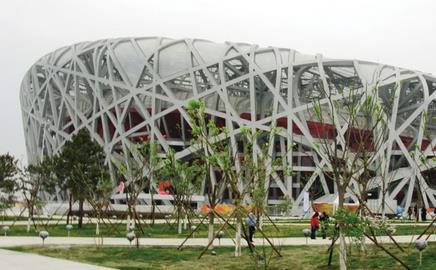I followed Chris Wise’s logic in questioning, for environmental reasons, whether RIBA should have recognised the 100,000-tonne Bird’s Nest stadium in Beijing (9 October, page 28), but I struggled to follow why he then used what was clearly a unique structure to criticise the efficiency of steel overall
Would he claim that it was not possible to eat healthily because someone once served a banquet?
Chris chose to speak about my company, Corus, and stated “that it is not in their interests to change to a more efficient beam”. Chris instinctively feels that we avoid such improvement so we can “sell more steel”. In reality, the growth of steel is achieved by the opposite approach. Corus puts a great deal of effort into improving the efficiency of our product applications across all sectors.
A good example is the rapid adoption of composite construction in the UK in the seventies and eighties, which reduced steel use dramatically on a building-by-building basis, but increased consumption overall. By maintaining our position as the most efficient and cost-effective solution, steel is used more widely.
It is possible to delight the shareholders and behave responsibly with regard to the environment. Achieving those dual aims is a fundamental of sustainable development. Hopefully, Chris will sleep easier tonight knowing his personal wealth and wellbeing does not necessarily cost the planet.
Roger Steeper, manager, market and product development, Corus


























No comments yet